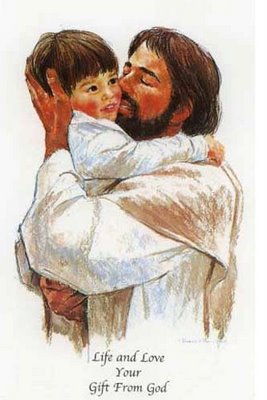“Come to me, all you who are weary and find life burdensome, and I will refresh you. Take my yoke upon your shoulders and learn from me, for I am gentle and humble of heart. Your souls will find rest, for my yoke is easy and my burden light.” (Matthew 11: 28 – 30)
Literally, the word ‘yoke’ is a bar of wood constructed in such a way so that two animals (usually oxen) can work together in the fields, drawing loads, and pulling instruments for farming. But when Jesus was using this word and asked His audience to learn from Him, there was a more profound meaning.
In the past, farmers used to put a young ox to work together with an older and more experienced ox with a yoke. In this way, the young ox would learn from the old ox. The old ox would take the major load and the young ox would be walking along and learning from the old ox.
When Jesus asks us to take His yoke and put it on us, He is asking us who are exhausted, weary, anxious, and burdened to take His yoke and learn from Him, and that He wants to assure us that He is right there staying with us, walking with us, accompanying us, teaching us, and strengthening us.
Since God is love, so His yoke is made of love. As a yoke binds two animals, likewise Jesus’ yoke of love binds Jesus Himself and us. He has not promised us that our life will be easy, we will still face difficulties and hardships in our journey of life, but we will not bear the burden alone. He has taken the lion’s share of our burden.
The yoke of love also binds ourselves and our brothers and sisters in Christ. St. Paul expressed the same line of thought succinctly in the epistle to the Romans, ‘Be happy with those who are happy, weep with those who weep.’ (Romans 12: 15)
In other words, help your brothers and sisters who need your assistance and support them in whatever way you can. It may be your helping hand that is needed. It may be a few comforting words. It may be your ears that are ready to listen. It may be your compassionate heart. It may be your prayers. It may be your sacrifices. It may be your precious time. It may be tangible materials such as money or food. Let them know you are a loyal brother or sister in Christ, let them know that they are not alone.
It is not always easy to offer timely assistance and comfort to our brothers and sisters who are in need of our help as selfishness is part of our innate human nature. We can, however, keep praying to God every day and ask Him to give us the willingness and the ability to love our neighbours. Praying in front of the tabernacle frequently is a great way to obtain strength to love our neighbours. Mother Teresa spent hours every day praying in front of the Holy Eucharist to obtain the incredible strength to love the most wretched people in Calcutta.
Jesus asked us to learn from Him because He is gentle and humble in spirit. (Matthew 11: 29) On another occasion, Jesus taught us the value of humility. He said, “Blest are the lowly; they shall inherit the land.” ( Matthew 5: 5 ) From the other versions of the Bible I have, other words that are used in this particular verse are ‘meek’ and ‘humble’. Many people, however, inaccurately equate humility, meekness, and lowliness with weakness. Nothing can be further away from the truth than this misinterpretation.
Jesus was indifferent to His contemporary political situation. He had no intention to liberate the Jews from the rule of the Romans. What has been in His mind is our well-being. He has been looking forward to the renewal of everything: a new heaven and a new earth. (Revelation 21:1) He is interested in fulfilling His Father’s will – Your Kingdom come, Your will be done on earth as it is in heaven.
 God is love. Those follow Him have heard His voice of love, and also His requirement to love. They always have the two greatest commandments in their mind: ‘Love the Lord with all your heart and with all your soul and with all your mind.’ That is the first and greatest commandment. And the second is like it: ‘Love your neighbour as yourself.’ All the Law and the Prophets hang on these two commandments.’ (Matthew 22: 37 – 40)
God is love. Those follow Him have heard His voice of love, and also His requirement to love. They always have the two greatest commandments in their mind: ‘Love the Lord with all your heart and with all your soul and with all your mind.’ That is the first and greatest commandment. And the second is like it: ‘Love your neighbour as yourself.’ All the Law and the Prophets hang on these two commandments.’ (Matthew 22: 37 – 40)
Love is forgiving. As He has forgiven us, we are also asked to forgive others, unconditionally and infinitely.
Love is service. He came to the world to serve, not to be served. He asks us to serve our neighbours selflessly.
Love is sacrifice. He has sacrificed His own life to save us. He asks us to sacrifice our own time and effort for the well-being of our neighbours.
To fulfill Jesus’ requirement to love needs courage, perseverance, and fidelity. That is what Jesus wants us to learn from Him.